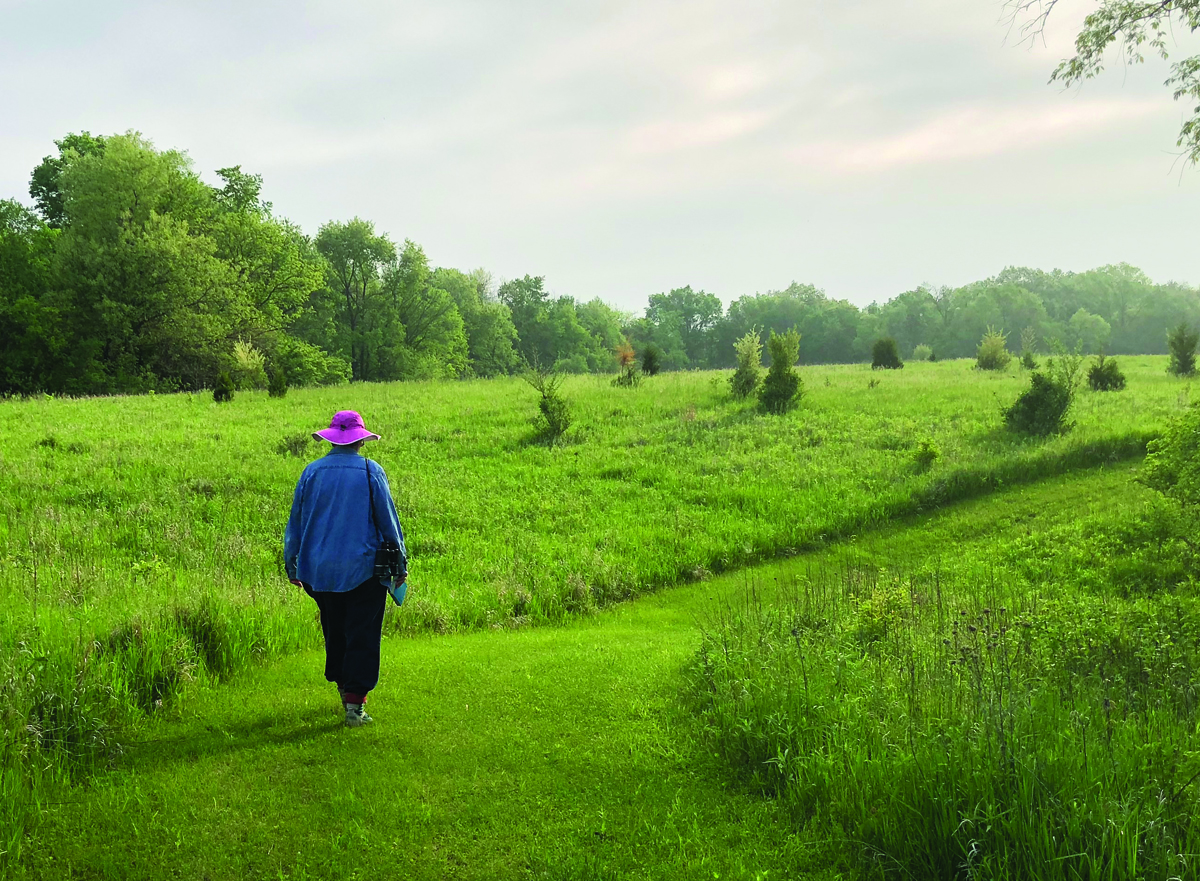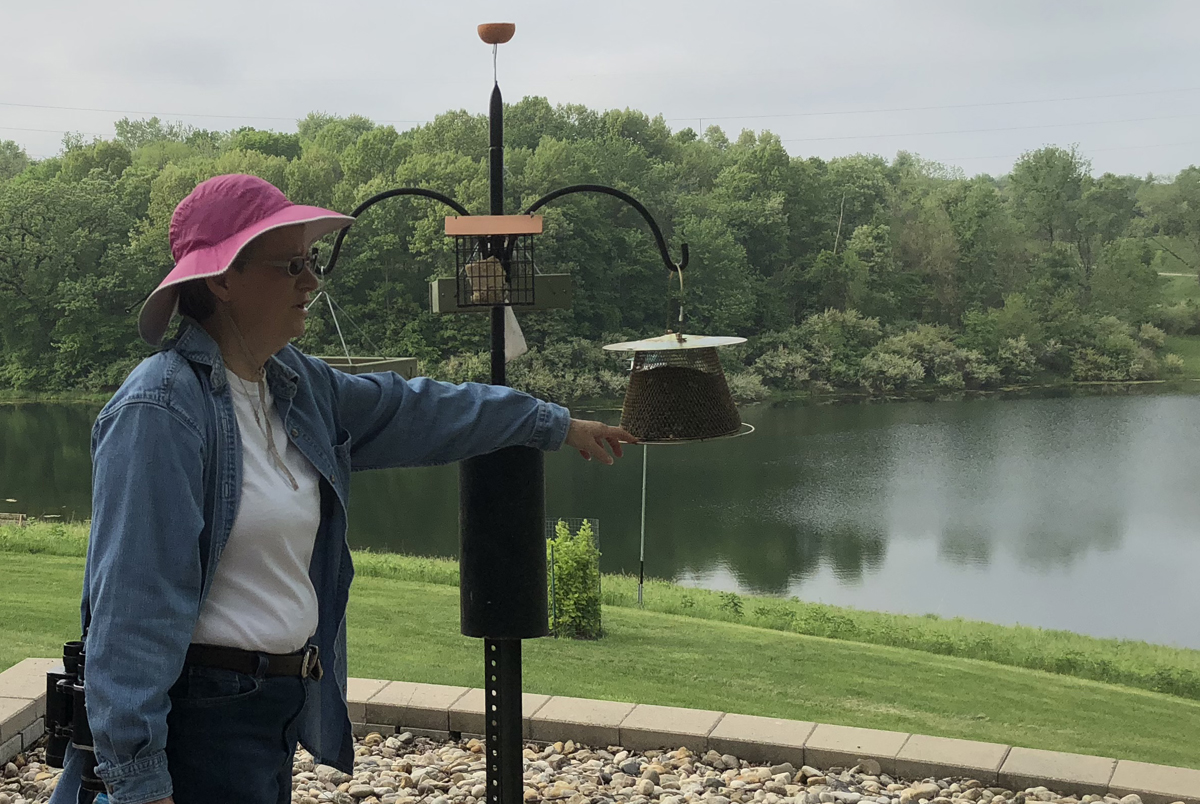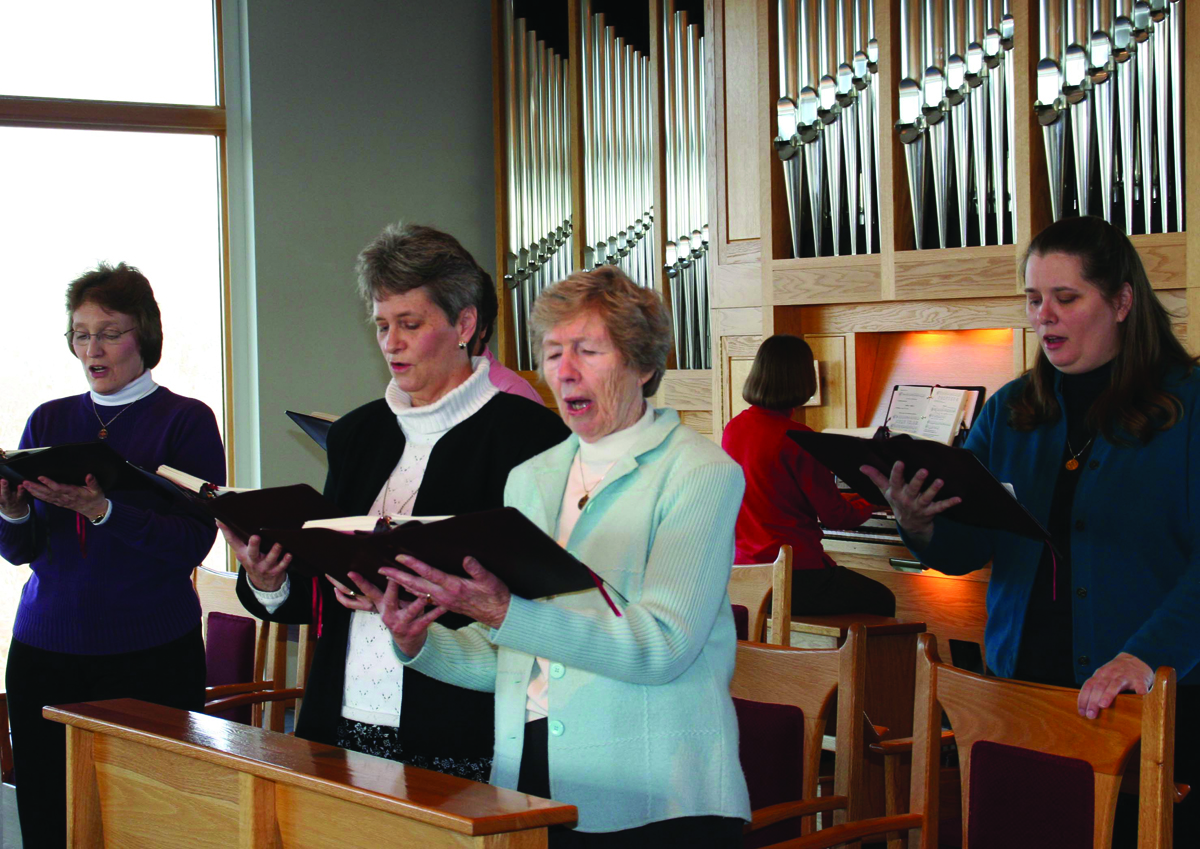
Prayer is standing in the presence of God with the mind in the heart; that is, at that point of our being where there are no divisions or distinctions and where we are totally one. - Henri Nouwen
The sun is rising as Sister Claudia Scharf tucks her pants into her socks. She’s meeting a friend for a hike in the monastery woods and wants to keep the ticks off.
Hat secured, bug repellent sprayed, binoculars slung over her shoulder and well-worn Peterson’s Field Guide in hand, they step into the early summer morning, quiet but for the birds and crickets.
Buffalo gnats float in clouds above the well-prepared Sister. Her guest, having forgotten to apply bug spray, encounters them head on, windshield-wiping the air in front of her face as they walk.
This is just another time a Benedictine Sister is noticeably calmer, quieter and more peaceful than others.
“Those swallows come back every year.” Sr. Claudia is pointing at the birds swooping overhead alongside Benet House.
“There’s a rose-breasted grosbeak. He eats at our feeder. There’s a red-bellied woodpecker.”
Do the Benedictine Sisters enter this community because they love nature or do they grow to love it once here?
Either way, loving nature – really seeing it, listening to it and learning from it – is something they share.
Credit their life of contemplative prayer.
From the first line of the Rule of St. Benedict – Listen with the ear of your heart – to the daily practice of Lectio Divina, Benedictines learn to still themselves; to cultivate presence, to what they are doing, to those they are with and to God.
“When I go out in nature, I feel God’s arms wrapped around me,” Sr. Claudia says.
A woodland choir of many-fluted voices rings out beyond Sand Creek and along the well-worn path of the forest. Sticks and leaves crunch underfoot. The cool air warms near the opening to the prairie just ahead.
“Nature reflects God,” she says. “To notice all living things – birds, flying insects, ants, worms – is a reverence to God who created everything.”
Contemplative practices like this early morning hike are what spiritual writer and Episcopalian priest Cynthia Bourgeault calls tools of wisdom that can awaken our hearts.
“Awakening the heart may sound like one of those lofty but unattainable ideals … but the task itself is quite doable,” she writes in The Wisdom Way of Knowing. “You could even say that we were born for it, because only with awakened hearts are we actually able to fulfill our purpose within the cosmos and take our place in that great dance of divine manifestation.”
The hike ends in time for Lauds. The Benedictines gather in their chapel every day for Lauds, Noonday Prayer and Vespers, where they chant psalms and pray other prayers.
Praying is another contemplative practice, Sister Marilyn Ring notes, that “draws us into awareness of God’s presence.
“We are all called to this awareness,” she says, “but we are so into ourselves that we are often unresponsive to what might be wonderful contemplative experiences.”
What contemplative practices might you use to increase your awareness of God? How might you ready yourself to respond to the “wonderful contemplative experiences” all around?
We will continue to share more contemplative practices from the Benedictine Sisters in posts to come.

Comments (0)
Add a Comment